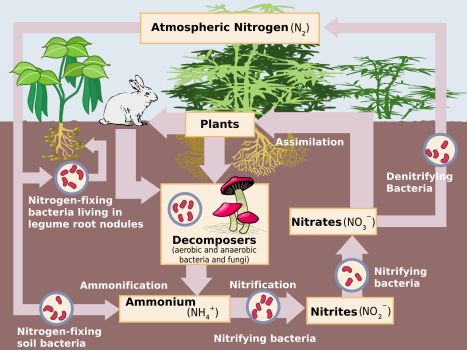
Although you may be aware of the fact that plants use their roots to absorb essential nutrients like nitrogen, you may not know the exact reason behind their need to gain nitrogen. So, let us start by telling you that nitrogen is a macro-nutrient that is highly important for the healthy growth of plants. If plants do not receive this component, then they may also show signs of nutritional deficiency as human beings do.
Nitrogen is majorly required so the stems and leaves of plants can grow with a healthy green color. It is a main component in chlorophyll that leads to the essential process of photosynthesis in plants. Thus, plants may not get healthy food to grow if nitrogen is missing. Nitrogen is a critical element in their multiple structures, as well as metabolic processes.
In line with the same, nitrogen has a major role when it comes to the structure of the roots of a plant. Since plants have to draw a variety of other nutrients and water through their roots, it is required that these roots work efficiently. A higher efficiency for roots is brought about by none other than nitrogen. With the help of nitrogen, the roots can draw more water and nutrients from the soil. If nitrogen is not present, then plants will eventually die after struggling to grow properly.
Many times, you observe such plants that have developed red or yellow leaves or shown a stunted growth. All this happens when they do not get sufficient amount of nitrogen from the soil or water in which they exist. Plants cannot use the nitrogen present in the atmosphere. Since they have to produce proteins, amino acids and DNA using a good amount of nitrogen, they absorb it all from the soil through their roots. Thus, always remember to give nutritional soil and enough water when you grow your house plants.